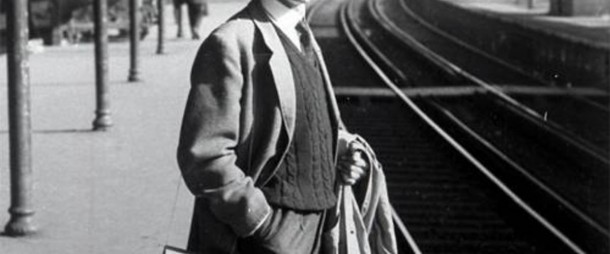
Director|Writer: Stuart Cooper
Cast: Brian Stirner, Davyd Harries, Nicholas Ball, Julie Neesam, Sam Sewell, John Franklyn-Robbins
83min | War Drama | UK
Stuart Cooper directed this impressionistic Second World War drama that follows a young British soldier from his home town to the D-Day beaches of Normandy. The soldier is Tom Beddows, a polite young man who could have inspired a poem by Wilfred Owen in the Great War. Played here by Brian Stirner (A Kind of Hush), Beddows naively takes a copy of Great Expectations with him to read in his spare time, conjuring up the general impression that the war would be some kind of a temporary blip in everyday life – little did they know.
This is a searingly poignant portrait of an ordinary soldier behind the guns and bluster of the war machine where anonymous death features daily in terrifying scenes and in silent moments where a Spitfire floats over the distant sea below before unleashing a tirade of torpedoes, and savage fires devastate towns and buildings. Stanley Kubrick’s regular DoP John Alcott’s shocking images of soldiers trying to clamber onto the rocky shoreline will remain burnt into the memory and are deftly interwoven with archival footage of giant metal Catherine Wheels rolling along the beaches to explode landmines and cut through barbed wire. Stuart Cooper spent several years compiling the archival and filmed footage in collaboration with the Imperial War Museum. A score of classics such ‘The Lambeth Walk’ lend a nostalgic and sometimes comforting atmosphere to the otherwise pitiful tragedy that unfolds.
Private Beddows meets a girl (Julie Neesam) at a dance. They chat and start to fall in love in a touching way, glad to share human tenderness in the midst of violence. At night, we see the young soldiers talk and smoke in bed as their potential fate gradually dawns on them: “Cannon Fodder – that’s what we are”. But there are lighter moments too as Beddows receives a birthday fountain pen from his parents and writes back to tell them about a trip to the cinema to see Celia Johnson in This Happy Breed. All this is intercut with horrifying footage of war plane flying treacherously overhead the countryside below. One hellish sortie sees an aircraft mercilessly shooting on a train as it puffs its way along a summer cornfield. Tom says goodbye to his parents telling them of his fear but acceptance of death and at never coming home again. He will miss his dog Tina. The final scene takes the form of a dreamlike sequence as Tom runs along the French beaches, imagining the girl embracing and undressing before him as her shadowy figure is reflected in his eyes. But it is not to be. MT
OVERLORD takes it title comes from an operation code word for an invasion sortie during wartime. Restored in a new 35mm print, OVERLORD is a different kind of war film; touching the psyche with a heart-rending sadness and melancholy evoked by Wilfred Owen: “My subject is War, and the pity of War. The Poetry is in the pity”. MT
OVERLORD won the Silver Bear at Berlin | AVAILABLE FROM 6TH JUNE 2016 | CRITERION UK —